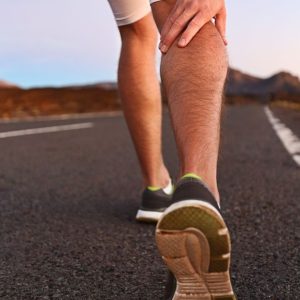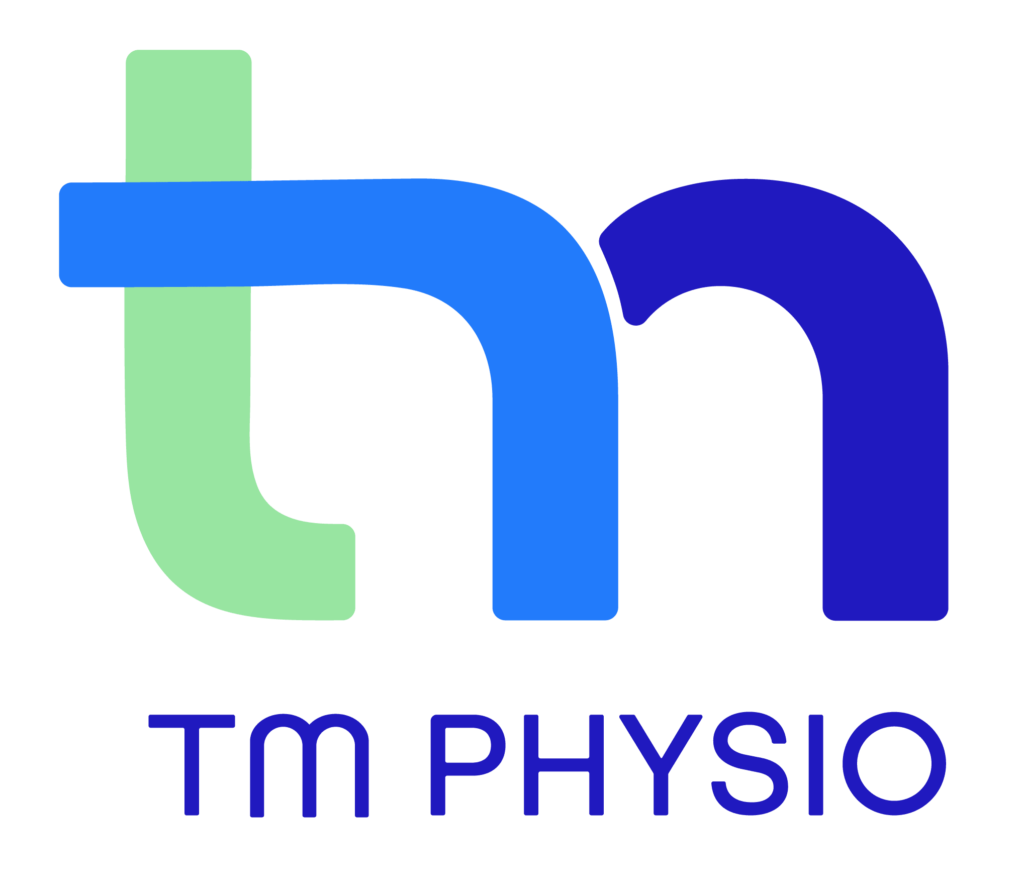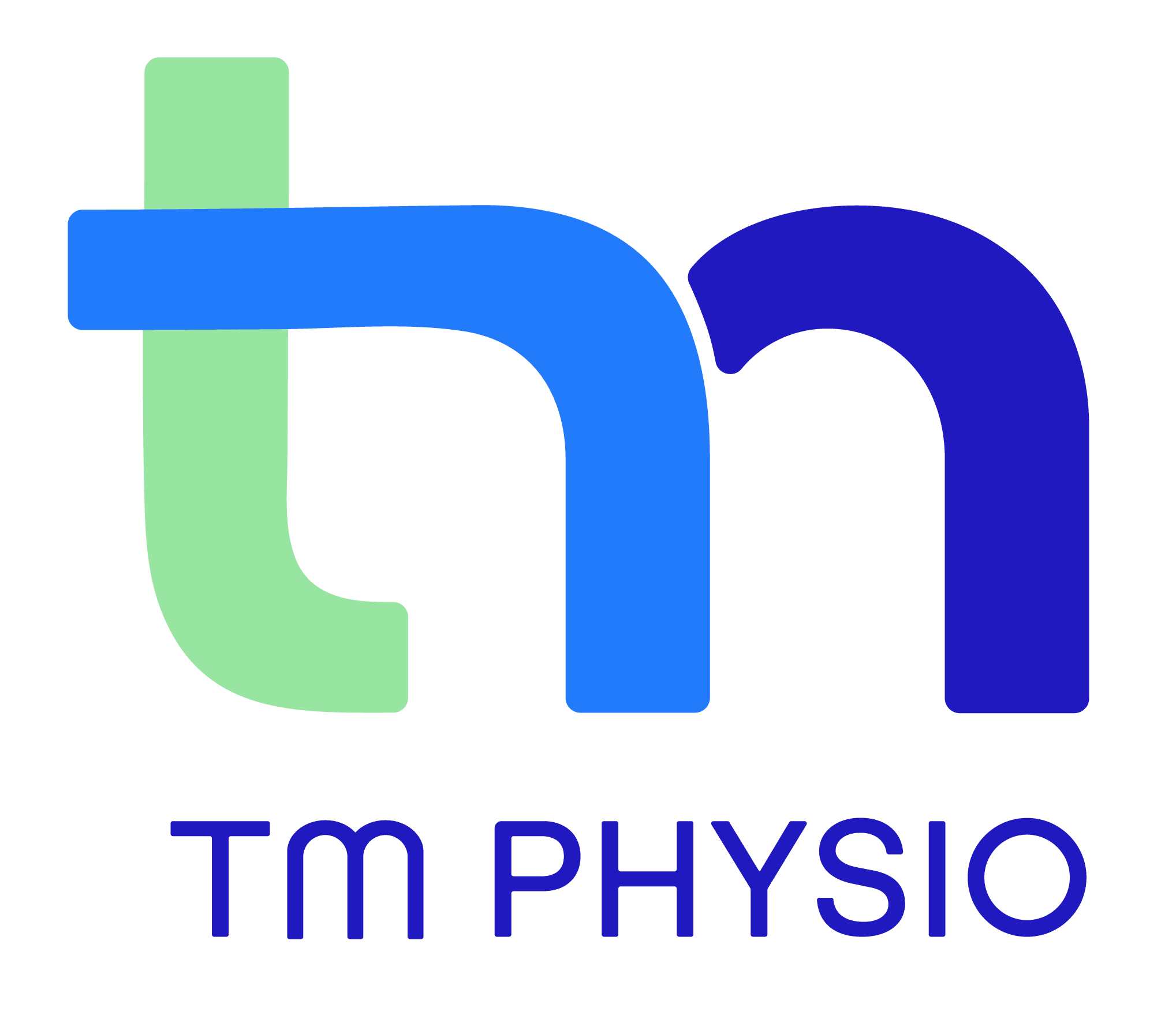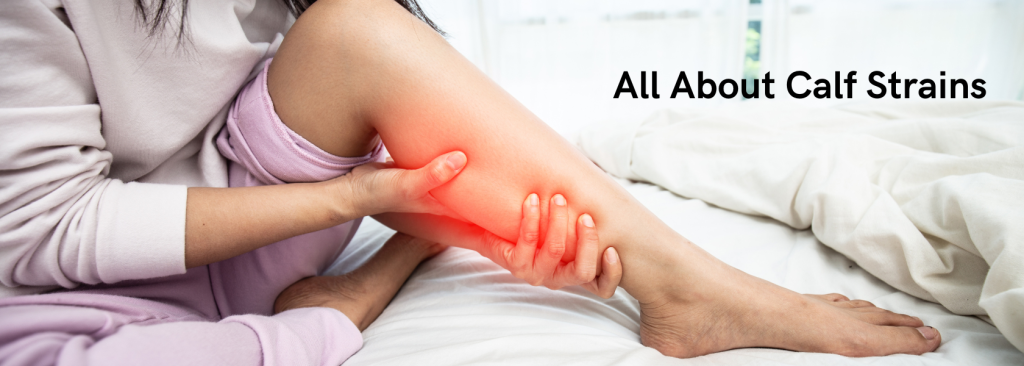Calf strains are a common injury. So, whether you’re experiencing dull aching pain during or after exercise or a sudden debilitating pain after a sudden movement, it is time to get in touch. Rest assured, there are several things that we can do to help you heal.
What Is a Calf Strain?
If the muscles of the calf are overstretched or torn, we refer to the injury as a calf strain. The most common location for this to happen is on the inside of the gastrocnemius muscle, especially around the point where the tendons of the calf connect to the muscle. The soleus muscle can also get damaged of course, but we see a lot more tears in the larger gastrocnemius, probably because it’s used more for dynamic and sudden movements. (Both muscles work to get you onto your tippy toes, but a sudden jump or break into a sprint is more likely to cause damage than a sustained lift to look at the top shelf of the kitchen cabinet.) They’re generally caused by those sudden, explosive movements OR by over-stretching of the muscles.
 Reducing your risk:
Reducing your risk:
This sort of injury can happen to anyone. There are a few tips you can use to help decrease your injury risk:
- reduce sustained time in high heeled shoes as overtime this can cause the calf muscles to tighten
- Have a suitable to warm up before exercise. Your warm-up and cool-down should always include a form or static or dynamic
- Do your shoes fit properly? Poorly fitted, non-supportive, worn-out, or flimsy shoes are not doing you any favours.
What can I do to help a calf strain?
If this is an acute, sudden pain treat it as you would any other impact injury – RICE (Rest, Ice, Compression, Elevation) will help control inflammation (and PAIN) and give you time to seek your physiotherapist’s advice. Our first step in treating your calf strain will be to assess the severity of the injury. This may involve a physical examination of the affected area, as well as a review of your medical history and any previous injuries. Once we understand the injury and its likely causes we’ll develop a treatment plan that is tailored to your individual needs. This may include a combination of the following strategies.
- Relative Rest
We may recommend rest if the calf strain is severe. Rest allows the injured muscles to heal. We might suggest modifications to your activities/exercises/footwear that allow you to continue with the things you need to do without disrupting the healing process or (if it’s bad) we might ask you to stop running and jumping for a time. We might even advise the use of crutches or a brace to help protect the affected area and prevent further injury.
- Compression
So, we know that you’ve applied RICE as mentioned above but we will advise on whether you need to keep doing it and prescribe compression garments if necessary. Or maybe we’ll just tape the joints to support their optimal movement.
- Manual Therapy
We’ve studied how the human body works for years. We’ll apply our skill and equipment to relieve pain, reduce inflammation, encourage blood flow to the affected area and get you healing sooner.
- Stretching and Strengthening Exercises
As the calf muscles begin to heal, it’s important to start gradually stretching and strengthening them to prevent further injury and promote recovery. And in the meantime we need to talk about adapted exercise regimes so that surrounding muscles stay strong. Your physiotherapist may recommend a series of exercises for you to do at home (after demonstrating and practising them in the clinic) such as calf stretches targeting the gastrocnemius and the soleus, toe raises, and heel drops.
In summary, we’re sorry you’re experiencing pain. Ditch your high-heels, remember to warm up and cool down, and call us for an appointment on 6254 9889 or book online.
The physiotherapists at TM Physio are here to help.


